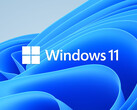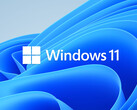When Microsoft announced its AI-powered Recall feature, which essentially creates a searchable timelapse of what you're doing on your desktop, there was a massive outcry from both privacy experts and computer nerds across the internet. While the initial Recall launch was pushed back, it looks like Microsoft has taken it upon itself to make it basically impossible to use modern Windows File Explorer features without Recall on the PC. According to YouTuber Chris Titus Tech (video embedded below), who performed testing and technical analysis on the latest Windows 11 24H2 update, it is possible to disable Recall, but doing so in any convenient way also disables the modern Windows File Explorer.
The YouTuber and software developer, known for his videos on how to debloat Windows and his automated tool to do the same, discovered in his testing of the latest update that Recall had been implemented as a dependency in Windows File Explorer. Titus's Windows debloating utility, MicroWin, is able to remove Recall, but in the process, File Explorer loses all of the nice touches that have been added in recent Windows updates. This essentially reverts the program to its Windows 7 state (albeit with slightly more modern icons), including removing dark mode and File Explorer tabs.
Titus did find a workaround for the issue, which involved disabling Recall, as opposed to removing it entirely, fortunately, this does seem to survive restarts, but it is currently impossible to remove Recall without breaking the File Explorer UI. When Microsoft previously pushed back the launch of Recall as a result of the privacy backlash, it said that the feature would be opt-in when it eventually launched to a widespread audience. However, this hardly seems to be the case in the 24H2 update. While this isn't a massive problem for those who use this utility or simply don't care about leaving Recall enabled, it is an indicator that Microsoft is going all-in when it comes to integrating Recall and AI-powered features into Windows going forward.
Another user on GitHub also pointed out that Microsoft's own DISM can be used to disable the Recall service without the File Explorer consequences, although Titus points out that this behaviour seems inconsistent, as in his testing, the File Explorer still changed its appearance after a restart. Inconsistency aside, it's unlikely that any non-technical Windows user will even know what DISM is, never mind how to use it, and this reliance on a command-line utility to remove a controversial feature is indicative of MIcrosoft's goals.
If you're looking for an alternative to Windows, the Lenovo ThinkPad E16 Gen 2 should run Linux pretty well, and starts at just $685.20 on Lenovo's US store.
















